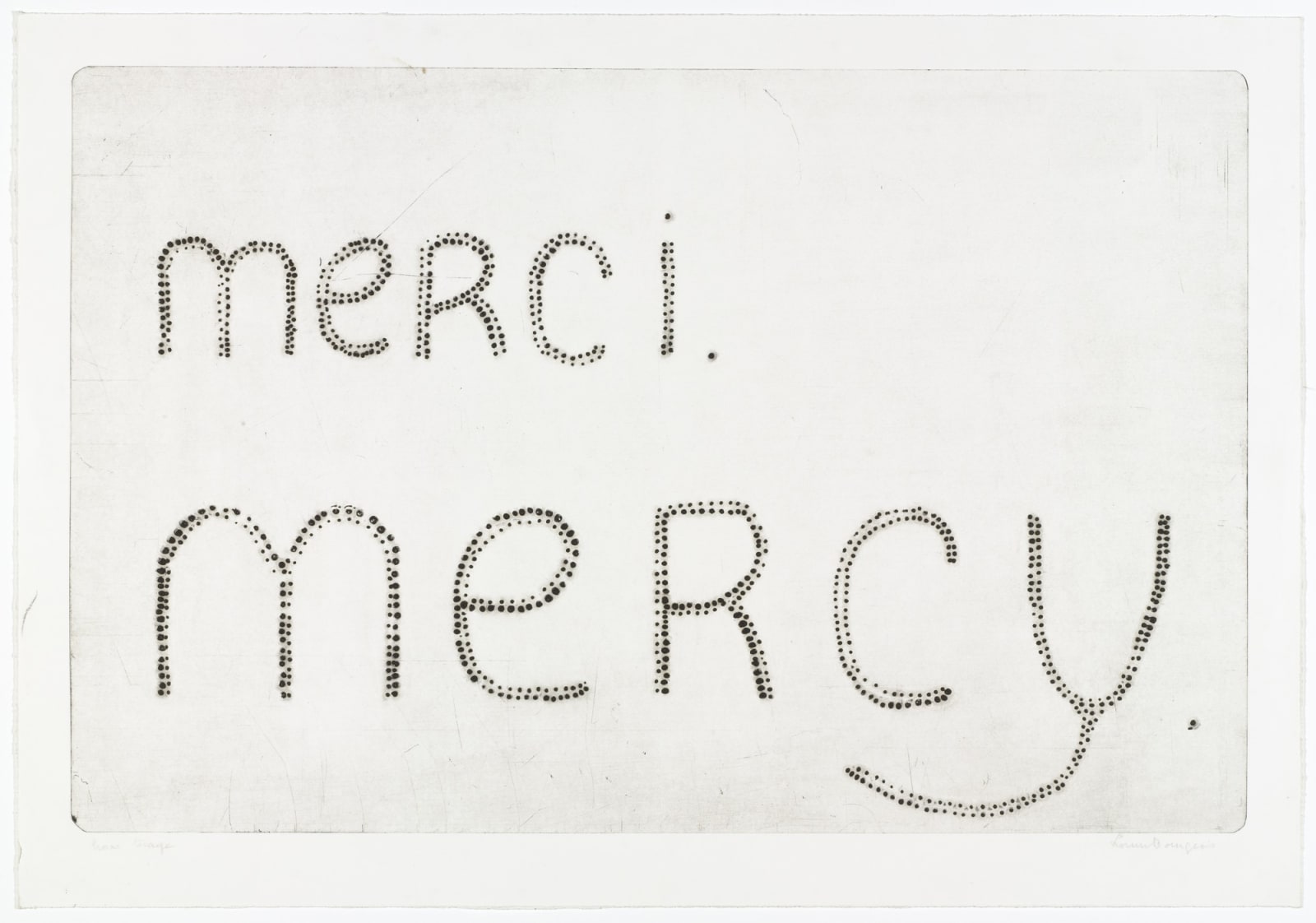-
Louise Bourgeois
merci. mercy., 1992drypoint, edition of 4553 x 76.4 cm (paper size)
Collection of MoMA, New YorkLouise Bourgeois’s 1992 drypoint 'Merci Mercy', seems, at a glance, an appropriate image for a world in which we are suddenly so aware of the need to give thanks to...Louise Bourgeois’s 1992 drypoint 'Merci Mercy', seems, at a glance, an appropriate image for a world in which we are suddenly so aware of the need to give thanks to those who look after us… but this is Bourgeois working with a very different intention, bashing her message home mark by mark by hammering a nail into a thin copper plate. She appears here, as the 11th artist in this sequence (following Caroline Walker’s image of her mother) as one for whom maternity was a recurring theme. Pregnancy, the womb, birth and the breast were constants across her long career, with the balance between thanks and forgiveness always central to her thoughts of motherhood. As she said: "I want much more than thank you... I want forgiveness... I ask for mercy”. At the same time, she struggled with the views of others, especially when her position as an artist of strength and determination led to her being ascribed a kind of heroic status - as she said in 1990, on the eve of her 80th birthday: “the feminists took me as a role model, as a mother. It bothers me. I am not interested in being a mother. I am still a girl trying to understand myself”.
We have included Bourgeois’ work in a number of exhibitions over the years, most recently as part of and per se and, a sequence of rolling pairings which celebrated the gallery’s 20th birthday in 2018, and in which her female 'Sainte Sébastienne', a kind of anxiety driven self-portrait, was matched with an anonymous 15th century altarpiece of the more typically male and punctured martyr.
This particular work, 'Merci Mercy', is one that has a special resonance in our lives, having spent the last 15 years on the wall of our kitchen as a constant reminder of both its apparent message and the underlying message of its medium.
